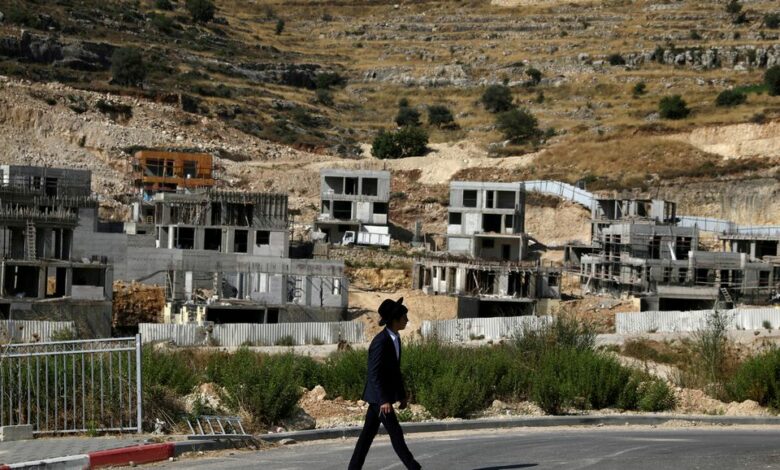
OSLO, July 5 (Reuters) – Norway’s largest pension fund KLP said on Monday it would no longer invest in 16 companies including Alstom (ALSO.PA) and Motorola (MSI.N) because of their links to Israeli settlements in the occupied West Bank.
Along with a number of other countries, Norway considers the settlements a breach of international law. Israel disputes this and cites Biblical and historical ties to the land, as well as security needs.
A 2020 United Nations report said it had found 112 companies that have operations linked to the West Bank, captured by Israel in a 1967 war and now home to around 450,000 Israelis and 3 million Palestinians.
The companies, which span telecoms, banking, energy and construction, all help facilitate Israel’s presence and therefore risk being complicit in breaches of international law, and against KLP’s ethical guidelines, it said in a statement.
“In KLP’s assessment, there is an unacceptable risk that the excluded companies are contributing to the abuse of human rights in situations of war and conflict through their links with the Israeli settlements in the occupied West Bank,” KLP said.
The move by KLP follows a decision by Norway’s sovereign wealth fund in May to exclude two companies linked to construction and real estate in the Palestinian territories. read more
KLP, which had $70 billion worth of assets under management at the end of the first quarter, said it had sold shares in the companies worth 275 million crowns ($31.81 million) and as of June had completed the process. In Motorola and Alstom, it had also sold its bond holdings.
Selling Motorola Solutions was “a very straightforward decision” as its video security and software was used in border surveillance.
Alstom did not reply to a request for comment. Motorola, with headquarters in Chicago, did not reply to a request for comment sent outside of U.S. office hours.
A senior member of the Palestine Liberation Organization (PLO) welcomed KLP’s move.
“The Norwegian step is significant to stop dealing with companies that support settlements on Palestinian land. We welcome it, and we urge other countries to take similar steps,” Wasel Abu Youssef told Reuters.
“After the United Nations announced its blacklist of companies that operate in settlements, all countries must either suspend the work of these companies or boycott them.”
Israeli authorities condemned KLP’s action.
“The decision harms Israelis and Palestinians and does not contribute to the resolution of the conflict,” an Israeli official said.
DIVESTMENTS
Telecoms companies including Bezeq (BEZQ.TA) and Cellcom Israel (CEL.TA) were removed as the services they provide help make the settlements more attractive residential areas, KLP said, while banks including Leumi (LUMI.TA) helped finance the infrastructure.
In a similar vein, construction and engineering groups such as Alstom and local peers Ashtrom (ASHG.TA) and Electra (ELTR.TA) were responsible for building the infrastructure, while Paz Oil (PZOL.TA) helped power them.
The other companies to be excluded were: Bank Hapoalim (POLI.TA), Israel Discount Bank (DSCT.TA), Mizrahi Tefahot Bank (MZTF.TA), Delek Group (DLEKG.TA), Energix Renewable Energies (ENRG.TA), First International Bank of Israel (FIBI.TA) and Partner Communications (PTNR.TA).
Bezeq, Mizrahi Tefahot Bank, Bank Hapoalim and Partner Communications declined to comment. The other companies did not reply to requests for comment.
Telecoms company Altice, which was listed until January 2021, was also excluded.
Altice did not reply to a request for comment.
($1 = 8.6460 Norwegian crowns)
Reporting by Gwladys Fouche in Oslo and Simon Jessop in London, Steven Scheer and Maayan Lubell in Jerusalem and Ali Sawafta in Ramallah, editing by Louise Heavens, Kirsten Donovan




